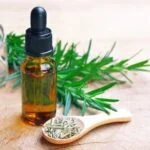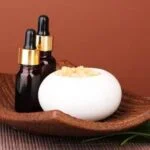Aromatherapy is a holistic healing treatment that uses natural plant extracts to promote health and well-being. It has been used for centuries to improve physical, mental, and emotional health. One potential benefit that has garnered attention is its ability to potentially lower blood pressure.
Blood pressure plays a crucial role in overall health, as high blood pressure can lead to serious health complications such as heart disease, stroke, and kidney problems. Understanding the potential of aromatherapy in managing blood pressure is an important aspect of exploring alternative methods of promoting cardiovascular wellness.
High blood pressure, also known as hypertension, is a common condition where the force of the blood against the artery walls is consistently too high. This condition can be caused by various factors including stress, lack of physical activity, unhealthy diet, and other underlying health issues. The prevalence of high blood pressure makes it essential to explore different avenues for managing and lowering blood pressure levels. Aromatherapy offers a potential natural approach that may complement traditional treatments for hypertension.
Aromatherapy works through the inhalation or topical application of essential oils derived from plants. These oils can have a direct impact on the body’s physiological functions, including circulation and relaxation.
The specific mechanisms behind how certain essential oils may affect blood pressure are still being studied, but there is growing evidence to support their potential benefits in promoting cardiovascular health. In the following sections, we will delve into how aromatherapy works and explore the specific essential oils that have shown promise in lowering blood pressure levels through scientific research.
Understanding High Blood Pressure
High blood pressure, or hypertension, is a common condition that affects millions of people worldwide. It occurs when the force of the blood against the walls of the arteries is consistently too high, putting a strain on the heart and blood vessels. If left untreated, high blood pressure can lead to serious health problems such as heart disease, stroke, and kidney failure.
Causes and Symptoms
There are several factors that can contribute to high blood pressure including genetics, age, excessive salt intake, lack of physical activity, and chronic stress. Many people with high blood pressure may not experience any symptoms at all or may only have mild symptoms. However, some individuals may experience headaches, shortness of breath, dizziness, or nosebleeds.
Risks of High Blood Pressure
Uncontrolled high blood pressure can cause damage to the arteries and organs over time. It increases the risk of heart disease and stroke as well as other health conditions such as vision loss, metabolic syndrome, and cognitive impairment. That is why it is essential for individuals with high blood pressure to manage their condition effectively in order to prevent these complications.
Can Be Beneficial
in managing high blood pressure by promoting relaxation and reducing stress levels which are known risk factors for hypertension. With simple lifestyle changes and holistic approaches such as aromatherapy, individuals with high blood pressure can take control of their health and improve their overall well-being.
How Aromatherapy Works
Aromatherapy can offer a natural and holistic approach to managing various health conditions, including high blood pressure. The practice involves the use of essential oils, which are derived from plants and are known for their aromatic properties. These oils can be inhaled or applied topically, and they are believed to have therapeutic effects on the body and mind.
The science behind aromatherapy lies in the relationship between the olfactory system and the brain. When essential oils are inhaled, the molecules stimulate the olfactory receptors in the nasal cavity, sending signals to the limbic system – the part of the brain that is responsible for emotions, behaviors, and certain physiological functions. This interaction can lead to various outcomes, such as relaxation, stress reduction, improved mood, and even potential effects on blood pressure.
In addition to inhalation, aromatherapy also includes topical applications of essential oils. When these oils are diluted and massaged into the skin, they can be absorbed into the bloodstream and may exert physiological effects. The combination of inhalation and topical application allows for a versatile approach to using aromatherapy for a range of health concerns, including blood pressure management.
| Aromatherapy Benefits | Effects on Blood Pressure |
|---|---|
| Relaxation & Stress Reduction | Potential for Lowering Blood Pressure |
| Improved Mood & Emotional Well-being | Promotes Relaxation & Calmness |
| Supports Overall Health & Wellness | Potential Effects on Stress-Related Hypertension |
Aromatherapy Essential Oils for Lowering Blood Pressure
Aromatherapy, a practice that involves using essential oils to promote health and well-being, has gained popularity in recent years for its potential therapeutic effects. But can aromatherapy lower blood pressure? Research suggests that certain essential oils may have a positive impact on blood pressure levels, offering a natural approach to managing hypertension. In this section, we will explore specific essential oils known for their potential effects on lowering blood pressure and the scientific evidence supporting their use.
One essential oil that has garnered attention for its potential to lower blood pressure is lavender oil. Studies have shown that inhaling the aroma of lavender oil can lead to a decrease in blood pressure and heart rate, promoting feelings of relaxation and calm. Additionally, rosemary oil has been found to have vasodilatory effects, which can help widen the blood vessels and reduce resistance in the cardiovascular system, potentially leading to lower blood pressure.
Another essential oil with potential benefits for blood pressure management is ylang-ylang oil. Research has suggested that ylang-ylang oil may help reduce stress and anxiety, which are often associated with elevated blood pressure levels. By promoting relaxation and reducing emotional tension, ylang-ylang oil can contribute to a more balanced state of mind and potentially lower blood pressure as a result.
In addition to these essential oils, other options such as bergamot, clary sage and frankincense are also believed to have properties that can support healthy blood pressure levels. It’s important to note that while these essential oils show promise in scientific studies, individual responses may vary. As with any natural remedy or alternative therapy, it’s advisable to consult with a healthcare professional before incorporating aromatherapy into your blood pressure management plan.
| Essential Oil | Potential Effects on Blood Pressure |
|---|---|
| Lavender Oil | Decrease in blood pressure and heart rate; promotes relaxation |
| Rosemary Oil | Vasodilatory effects; widens blood vessels and reduces resistance in the cardiovascular system |
| Ylang-Ylang Oil | Reduces stress and anxiety; promotes relaxation |
Aromatherapy Techniques for Blood Pressure Management
Inhalation
One of the most common aromatherapy techniques for managing blood pressure is through inhalation. This method involves breathing in the aroma of essential oils, which can have a direct impact on the nervous system and cardiovascular function.
Inhalation of certain essential oils can aromatherapy lower blood pressure by promoting relaxation, reducing stress, and improving overall emotional well-being. A few popular essential oils for inhalation include lavender, bergamot, and ylang-ylang, which have been shown to have calming effects on the body.
Topical Application
Another effective aromatherapy technique for blood pressure management is topical application of essential oils. When applied to the skin, these oils are absorbed into the bloodstream and can have a localized as well as systemic effect on the body.
Certain essential oils such as rosemary, frankincense, and clary sage may help to dilate blood vessels and promote improved circulation, which in turn can aromatherapy lower blood pressure It’s important to dilute these oils with a carrier oil before applying them to the skin to avoid any potential irritations or allergic reactions.
Aromatherapy Diffusers
Using an aromatherapy diffuser is another popular technique for incorporating essential oils into a daily routine for blood pressure management. These devices disperse the aroma of essential oils throughout a room, allowing for continuous inhalation over an extended period. Diffusing relaxing and calming scents like chamomile, jasmine, or neroli can aromatherapy lower blood pressure by creating a soothing environment that promotes relaxation and stress reduction.
By incorporating these aromatherapy techniques into your daily routine, you may experience potential benefits in managing your blood pressure levels alongside other lifestyle changes and medical treatments. However, it’s important to consult with a healthcare professional before using aromatherapy as a complementary approach to managing high blood pressure.
Lifestyle and Diet Tips for Managing Blood Pressure
Maintaining a healthy lifestyle and following a balanced diet are crucial aspects of managing blood pressure. In addition to conventional approaches, incorporating aromatherapy into your routine can also provide additional support in lowering blood pressure. Here are some lifestyle and diet tips that can be combined with aromatherapy to effectively manage blood pressure:
- Engage in regular physical activity: Regular exercise is an important part of maintaining a healthy blood pressure. Engaging in activities such as walking, swimming, or yoga can help lower high blood pressure. Combining exercise with aromatherapy using essential oils like lavender or rosemary can enhance the relaxation and stress-reducing benefits of physical activity.
- Follow a heart-healthy diet: Consuming a diet rich in fruits, vegetables, whole grains, and lean proteins can contribute to healthy blood pressure levels. Additionally, reducing sodium intake and limiting the consumption of processed foods can also support overall cardiovascular health. To complement your dietary efforts, diffusing essential oils like bergamot or ylang-ylang during meal times can create a calming atmosphere and aid in digestion.
- Manage stress: Chronic stress is a known contributing factor to high blood pressure. Practicing stress-reducing techniques such as meditation, deep breathing exercises, or massage therapy can have a positive impact on blood pressure levels. Aromatherapy diffusers can be used to disperse calming scents like chamomile or frankincense throughout your living space to promote relaxation.
By integrating these lifestyle and diet tips with the use of aromatherapy, individuals looking to manage their blood pressure holistically can effectively support their cardiovascular health in a natural and complementary way. As always, it’s important to consult with a healthcare professional before making any significant changes to your lifestyle or starting a new wellness regimen.
Potential Risks and Precautions of Aromatherapy for Blood Pressure
Aromatherapy is a popular practice that involves using essential oils for their potential health benefits. Many people believe that aromatherapy can help lower blood pressure and promote overall well-being. While there is some evidence to support this claim, it is important to understand the potential risks and precautions associated with using aromatherapy for blood pressure management.
Here are some important considerations to keep in mind when using aromatherapy for blood pressure:
1. Allergic Reactions: Some individuals may be allergic to certain essential oils, which can cause skin irritation or respiratory issues. It is essential to perform a patch test before using any new essential oil and consult with a healthcare professional if you have known allergies.
2. Essential Oil Interactions: Certain essential oils can interact with medications or other medical conditions. It is important to talk to a doctor or pharmacist before using aromatherapy if you are taking prescription medications or have pre-existing health concerns.
3. Proper Dilution and Application: Essential oils are highly concentrated and should be properly diluted before use. Improper application or ingestion of undiluted essential oils can lead to adverse effects on blood pressure and overall health.
In summary, while aromatherapy has the potential to lower blood pressure and support overall wellness, it is crucial to use caution and consult with healthcare professionals when incorporating essential oils into a blood pressure management plan. With proper education and care, aromatherapy can be a valuable tool in promoting holistic well-being.
Conclusion
In conclusion, aromatherapy can potentially play a significant role in lowering blood pressure and promoting overall cardiovascular health. The use of essential oils in aromatherapy has been shown to have calming and relaxing effects on the body, which can help reduce stress and anxiety – both of which are linked to high blood pressure.
Additionally, certain essential oils like lavender, rosemary, and bergamot have been specifically studied for their potential effects on blood pressure regulation, showing promising results in some research studies.
By exploring different aromatherapy techniques and practices such as inhalation and topical applications, individuals with high blood pressure can incorporate essential oils into their daily routine as part of a holistic approach to managing their condition. However, it is important to note that while aromatherapy may offer benefits for some individuals, it is not a substitute for medical treatment or lifestyle changes recommended by healthcare professionals.
It should be used in conjunction with other healthy habits such as regular exercise, a balanced diet, and stress management techniques.
In summary, while more research is needed to fully understand the impact of aromatherapy on blood pressure regulation, the findings so far suggest that it can be a valuable complementary therapy for individuals looking to manage their high blood pressure. With proper education and guidance on the safe and effective use of essential oils, aromatherapy can be an empowering tool for individuals seeking natural ways to support their cardiovascular health.
Frequently Asked Questions
What Essential Oils Bring Down Blood Pressure?
Some essential oils that have been shown to bring down blood pressure include lavender, rosemary, and frankincense. These oils can be used in aromatherapy or diluted and applied to the skin for their potential benefits.
Does Peppermint Oil Help Lower Blood Pressure?
Peppermint oil may help lower blood pressure, as studies have suggested that inhaling its aroma can have a relaxing effect on the body, leading to reduced blood pressure. However, more research is needed to fully understand its effects.
Can Inhaling Lavender Oil Lower Blood Pressure?
Inhaling lavender oil has been associated with lowering blood pressure in some studies. The calming and relaxing properties of lavender may help reduce stress and anxiety, which in turn can contribute to lower blood pressure levels. Nonetheless, it’s important to consult a healthcare professional before using essential oils for this purpose.

Are you looking for a natural way to improve your health and wellbeing?
If so, aromatherapy may be the answer for you.




